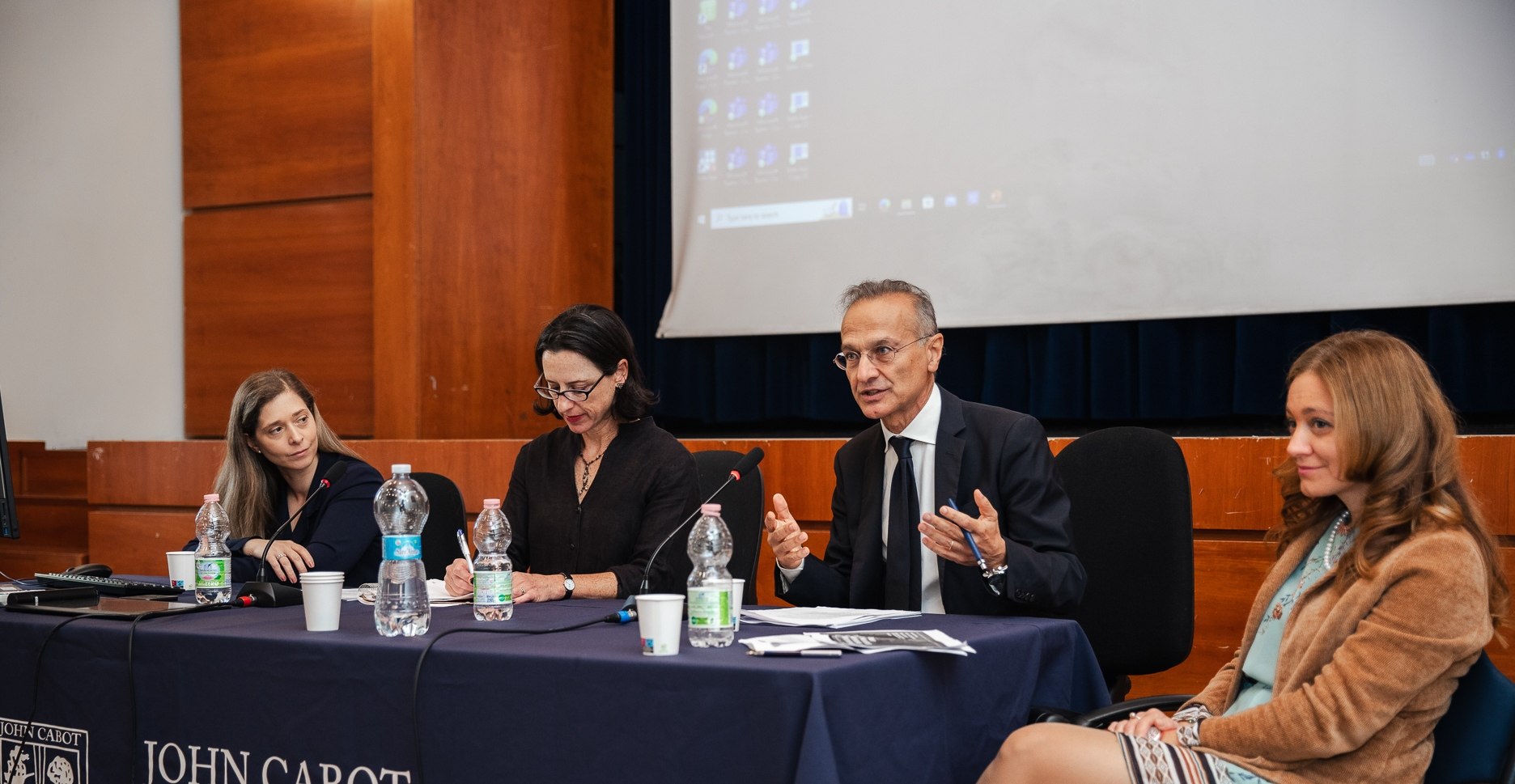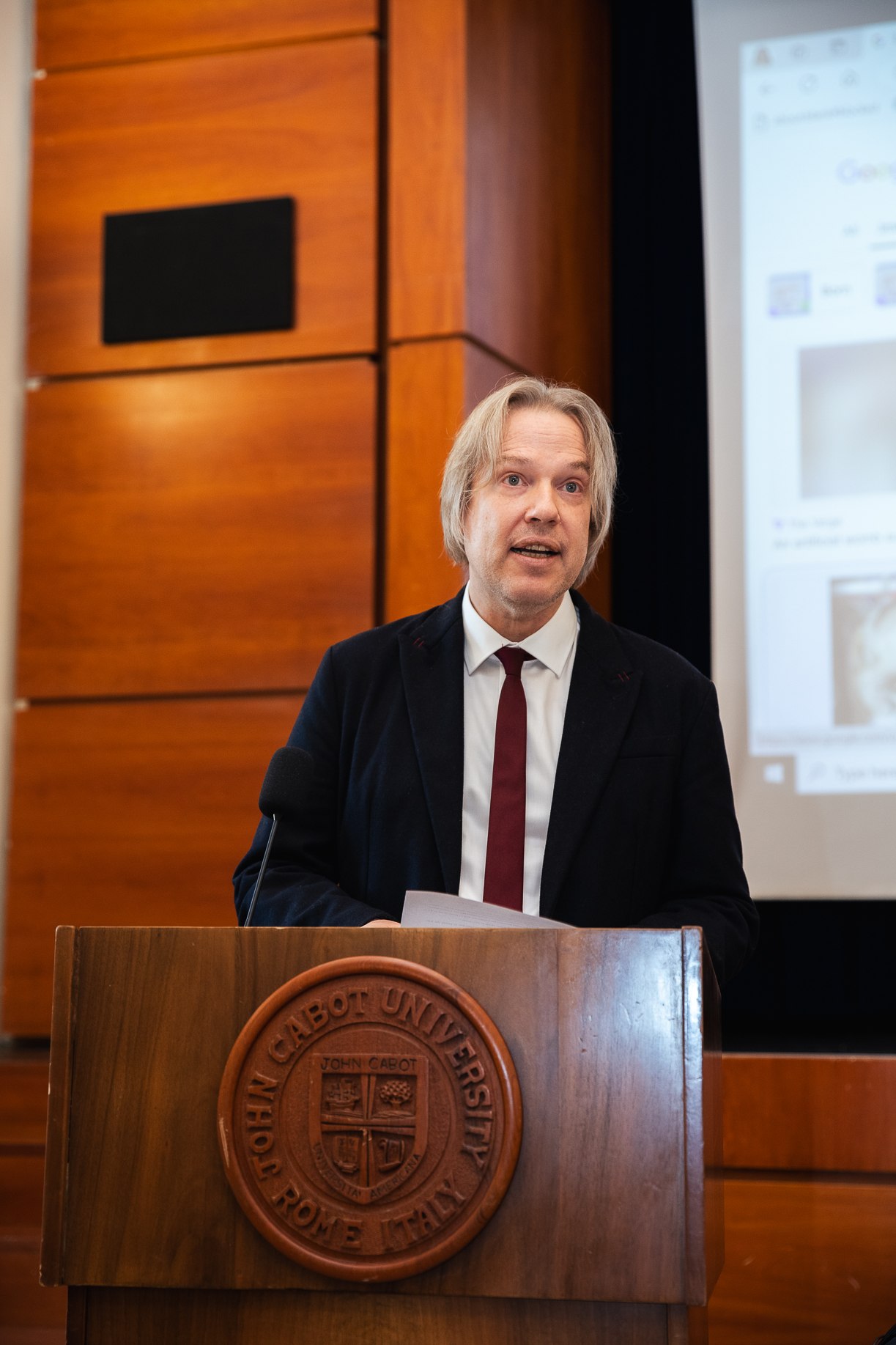JCU Hosts International Workshop on Recent Legal Developments Concerning Gestational Surrogacy
On November 8th, John Cabot University hosted the “International Workshop on Recent Legal Developments Concerning Gestational Surrogacy.” The workshop was co-organized by JCU Professor Silvia Scarpa and Dr. Ilja Richard Pavone (National Research Council, CNR) and it was co-sponsored by the Department of Political Science and International Affairs, the CNR Interdepartmental Center for Research Ethics and Integrity (Centro Interdipartimentale per l’Etica e l’Integrità nella Ricerca), and the European Society of International Law’s Interest Group on International Bio Law.

The event was opened by JCU Dean of Academic Affairs, Stefano Arnone, who, in his talk, underlined how this initiative contributes to the realization of one of JCU’s missions – to create an academic community that fosters intellectual tolerance, freedom and integrity. This goal can only be achieved through open debates in which contrasting points of view on relevant and complex issues in our contemporary society, such as gestational surrogacy, are presented and examined in a respectful manner.

Gestational surrogacy was then discussed from an ethical point of view by JCU Professor Stefan Lorenz Sorgner, who delivered a keynote speech in which he examined the impactful role that technology has had on reproduction techniques and how this has led to “a disentanglement between sex and reproduction.” Two panels followed, respectively on “Gestational Surrogacy and International Human Rights Law” with presentations delivered by Professor Angelo Schillaci (Sapienza University), Dr. Ilja Pavone (CNR), and Professor Pamela Harris, and on “Gestational Surrogacy in the European Framework” with Professors Roberto Baratta (Roma Tre University), Silvia Scarpa, and Dr. Emanuela Midolo (CNR).
Each speaker delved into the ways in which gestational surrogacy is regulated in multiple legal systems, with a focus on the Italian and Californian ones. They looked into the complex legal issues raised by procreative tourism, and considered the legal and jurisprudential actions taken by the Council of Europe and European Union (EU). In addition, they commented on the recent inclusion of the “exploitation of surrogacy” among the forms of exploitation enumerated in the definition of trafficking in persons contained in the new EU Directive 2024/1712.





